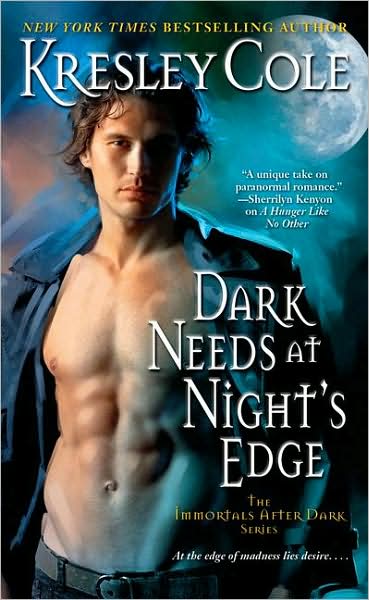 To Desire a Devil: B-
To Desire a Devil: B-Beatrice Corning & Reynaud St. Aubyn
Legend of Four Soldiers, book 4 (last)
NOTHING IS MORE INTOXICATING—
Reynaud St. Aubyn has spent the last seven years in hellish captivity. Now half mad with fever he bursts into his ancestral home and demands his due. Can this wild-looking man truly be the last earl’s heir, thought murdered by Indians years ago?
OR DANGEROUS—
Beatrice Corning, the niece of the present earl, is a proper English miss. But she has a secret: No real man has ever excited her more than the handsome youth in the portrait in her uncle’s home. Suddenly, that very man is here, in the flesh—and luring her into his bed.
THAN SURRENDERING TO A DEVIL.
Only Beatrice can see past Reynaud’s savagery to the noble man inside. For his part, Reynaud is drawn to this lovely lady, even as he is suspicious of her loyalty to her uncle. But can Beatrice’s love tame a man who will stop at nothing to regain his title—even if it means sacrificing her innocence? (author's website)
Fingers are pointed at Reynaud St. Aubyn, but that doesn't make much of a difference since Reynaud had died in the battle.
Much to everyone's surprise (and horror?), a wild, dangerous man bursts into Beatrice Corning and her Uncle Reggie's (now, the Earl of Blanchard) room. This man claims to be Reynaud and the true Earl of Blanchard.
Beatrice, who has admired Reynaud (from a painted picture of him) for years, is strangely attracted to him, knowing that if what "Reynaud" claims is true, then her Uncle would be stripped of his title and home. Uncle Reggie has cared for her since she was young and she cannot help but to be loyal to him, however, she cannot resist Reynaud...
Readers, I'm not going to lie: I was hoping for more from this book. I was a little annoyed at Beatrice and Reynaud, a little bored by the mystery (though I had started the book really wanting to know who the traitor was), and overall, a little unsatisfied.
Beatrice is a lovely, proper English lady with a romantic nature. The kind of English girl who wants a boy to love her - to really, passionately love her. She imagines Reynaud St. Aubyn is this type of a man. When she meets him, she's intrigued and vexed by his stubbornness and his change in ...everything. Reynaud is no longer the mischievous carefree boy; instead, he is war-torn, has been tortured, and has come to know one of the harsher realities of life.
The problem I had with Beatrice was her lack of conviction in what she wanted, or needed. Or maybe it was just the way Ms. Hoyt wrote about Beatrice and her actions.
Sexual tension has been leading up.... something bad happens and Beatrice is shattered. She is mourning, and right then!, Reynaud decides he wants her. You know, wanting in the bedroom-tango, hanky-panky type of way. (Jerk!)
Beatrice, while she is grieving, realizes life is short and she needs to grab it for all its worth... and even though she is saddened by the fact that Reynaud doesn't love her (she doesn't even know if he likes her much), she goes, YES! Sleep with me because I'm sad and lonely and emotionally overwhelmed. It doesn't matter that I've been wanting to do this with a really special person, one who loves me because Reynaud, I think you're smokin' hot!
...erm...
Okay, let's, for the sake of well... giving Beatrice a chance, let's say she really needed to feel alive that night and being with Reynaud was the only way she was going to feel this. Fine.
She does it again the next night.
Woman!
Have you no dignity?!
More than anything, it comes down to control. Beatrice couldn't control herself, couldn't say no to Reynaud (didn't want to say no to Reynaud even though she did. You know what I mean..) despite all else.
I hate that.
I hate it when men or women are portrayed to have no control over one's actions. You can control yourself, no matter how hot and Brad Pitty he is. It's a good thing Reynaud ended up loving her by the end of the book (LOL, though did we ever doubt it...?).
Besides from that major beef, I'd say that the ending was a little lackluster. Not that the book was really read for the mystery, but since the mystery spanned four books, it should have ended with a bigger pizzazz...
Bottom line: read but don't be expecting to experience the greatest love story.







